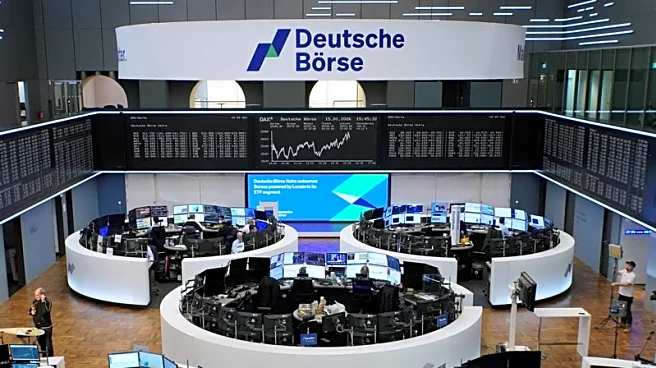What's Happening?
The International Monetary Fund (IMF) has released a Governance and Corruption Diagnostic Assessment (GCDA) for Pakistan, highlighting corruption as a significant macroeconomic constraint. The report,
spanning 190 pages, details how governance failures and corruption drain a substantial percentage of Pakistan's GDP annually. It points out issues such as discretionary tax exemptions, off-budget slush funds, and a patronage economy within public procurement and state-owned enterprises. The report criticizes the Special Investment Facilitation Council (SIFC) for opaque tax concessions and lack of accountability. Despite the detailed analysis, the report lacks enforceable actions or binding conditionality, unlike similar assessments in other countries like Sri Lanka.
Why It's Important?
The IMF's assessment underscores the critical impact of corruption on Pakistan's economy, potentially affecting GDP growth by 5-6.5 percentage points over five years if reforms are implemented. The report's findings highlight the need for structural reforms, including e-governance in procurement and tax filing, and the establishment of an independent anti-corruption agency. However, the absence of enforceable measures raises concerns about the effectiveness of the report in driving change. The situation reflects broader challenges in governance and accountability within Pakistan, impacting economic stability and development.
What's Next?
The report's release may prompt discussions among policymakers and stakeholders in Pakistan regarding the implementation of recommended reforms. However, the lack of binding conditionality suggests that significant changes may not occur without external pressure or incentives. The IMF's findings could influence future negotiations and aid packages, potentially leading to more stringent conditions in future agreements. The report may also serve as a reference point for civil society and advocacy groups pushing for greater transparency and accountability in governance.
Beyond the Headlines
The report's candid assessment of corruption in Pakistan highlights deeper issues of elite capture and governance failures. It raises ethical and legal questions about the role of international organizations in addressing systemic corruption and the effectiveness of their interventions. The situation in Pakistan reflects broader challenges faced by countries with entrenched corruption, where geopolitical considerations often overshadow reform efforts. The report's findings may contribute to ongoing debates about the balance between diplomatic engagement and enforceable action in international economic policy.











